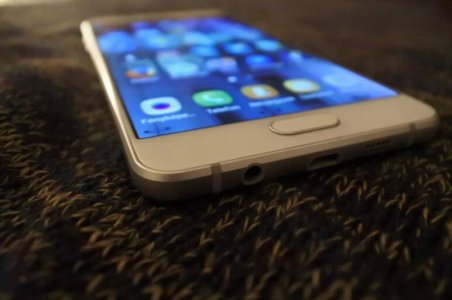How one phone call cost this woman her entire $30,000 inheritance
- Replies 30
When you receive a call from an unknown number, do you answer it or let it ring?
For 54-year-old Sharon Watkins, answering a call from an unknown number on her cell phone wasn’t a big deal. But what happened next saw her life change unexpectedly—and not in a good way.
The person on the other end told Ms Watkins that she would be charged $99 if she didn’t cancel her Amazon Prime account, which is a paid subscription service.
According to Ms Watkins, she had signed up for the streaming service but found that she wasn’t using it. The medical receptionist responded to the recorded message and agreed to speak to somebody who said they were from Amazon to cancel the account and avoid the charge.
However, things took a turn for the worse.
In a short amount of time, Ms Watkins, who lives in the rural community of Woomelang, found herself scammed out of her entire savings of $30,000, left to her by her late mother.
Ms Watkins said she only answered the call from the mobile number because she thought it might’ve been a tradesperson she was waiting to hear from.
‘It was an automated call, saying my Amazon Prime free trial was about to expire and if I didn't want to incur a $99 credit out of my account, I needed to press one and cancel it,’ the woman told reporters.
And so, she followed the instructions and pressed one.
‘I was put through to a woman. I told her I wanted to cancel and she asked me why. I said “I don’t use it all that much”, and she said that it was fine, and proceeded to ask me to download an app to fill in an online cancellation form,’ Ms Watkins added.
Ms Watkins was then instructed to download an app called Zoho Assist, which she did.
Based on research, the app itself is legitimate. Its purpose is to allow the user to access another computer remotely when given permission. However, it can be assumed that anyone who asks you to download an app to cancel a service should be taken as a red flag.
When Ms Watkins tried to fill out a form online based on the instructions given to her, she encountered an error message.
The woman on the other end of the line transferred Ms Watkins to her ‘supervisor’ to resolve the issue.
‘I was speaking to someone called David who asked me to go into my Amazon account to verify the card that I used for my transactions and purchases,’ she said before adding that David asked Ms Watkins to go into her bank account and verify that ‘everything was okay’.
At this point, Ms Watkins stated that she still had no suspicions, except for the fact that the cancellation seemed to be taking a while.
‘I wanted to make sure I wasn't charged $99. That was all I was thinking about.’
Ms Watkins then told David that she had to go, and he asked if he could call her again the next day. He said that the cancellation was taking a long time because her internet was slow.
‘He said, “tonight don't use your internet and it probably won't take as long tomorrow”. I immediately had a bad thought,’ Ms Watkins shared.
She logged straight onto her bank account and noticed that there were two large transfers out of her savings and everyday bank account.
Shaking out of fear, she called Bendigo Bank immediately.
The bank told her that although they locked the account, they needed more time to investigate and weren’t sure if she’d get her money back.
Surprisingly enough, the scammer called Ms Watkins again the next morning and this gave her the chance to confront them.
‘I said, “Where’s my money?” He said, “You won’t get your money back.”’
Now, Ms Watkins wants to warn people about similar scams. She also said this whole ordeal is ‘destroying her’.
‘If you have any doubt whatsoever about a call, text or email out of the blue from a business or company you are associated with, stop communicating with them straight away and call them directly to verify it's legitimate,’ she explained.
In a recent update by reporters, Bendigo and Adelaide Bank said they will refund the money to Ms Watkins.
A spokesman claimed that Bendigo and Adelaide Bank take cybersecurity very seriously.
‘We use a combination of security best practices to safeguard our systems and protect customer data. We would like to take the opportunity to remind customers of the important role they play in keeping their information secure, as we continue to look for new ways to detect and neutralise threats to their online security,’ they added.
Meanwhile, Amazon said that they will never ask for credit card information to verify personal details or someone’s identity before helping with a customer service issue. They also stated they will never ask for payments over the phone or via email, and ask customers to buy a gift card for any service or download any software.
A spokeswoman for Amazon stated: ‘Although these scams take place outside our store, we will continue to invest in protecting customers and educating the public on scam avoidance.’
Scamwatch also warns consumers to never give an unsolicited caller remote access to a computer, or personal information, and to hang up immediately. If you or someone you know has fallen victim to a scam, alert the authorities and report it here.
 Have you encountered something similar, members? Share your thoughts and experiences in the comments below!
Have you encountered something similar, members? Share your thoughts and experiences in the comments below!
For 54-year-old Sharon Watkins, answering a call from an unknown number on her cell phone wasn’t a big deal. But what happened next saw her life change unexpectedly—and not in a good way.
The person on the other end told Ms Watkins that she would be charged $99 if she didn’t cancel her Amazon Prime account, which is a paid subscription service.
According to Ms Watkins, she had signed up for the streaming service but found that she wasn’t using it. The medical receptionist responded to the recorded message and agreed to speak to somebody who said they were from Amazon to cancel the account and avoid the charge.
However, things took a turn for the worse.
In a short amount of time, Ms Watkins, who lives in the rural community of Woomelang, found herself scammed out of her entire savings of $30,000, left to her by her late mother.
Ms Watkins said she only answered the call from the mobile number because she thought it might’ve been a tradesperson she was waiting to hear from.
‘It was an automated call, saying my Amazon Prime free trial was about to expire and if I didn't want to incur a $99 credit out of my account, I needed to press one and cancel it,’ the woman told reporters.
And so, she followed the instructions and pressed one.
‘I was put through to a woman. I told her I wanted to cancel and she asked me why. I said “I don’t use it all that much”, and she said that it was fine, and proceeded to ask me to download an app to fill in an online cancellation form,’ Ms Watkins added.
Ms Watkins was then instructed to download an app called Zoho Assist, which she did.
Based on research, the app itself is legitimate. Its purpose is to allow the user to access another computer remotely when given permission. However, it can be assumed that anyone who asks you to download an app to cancel a service should be taken as a red flag.
When Ms Watkins tried to fill out a form online based on the instructions given to her, she encountered an error message.
The woman on the other end of the line transferred Ms Watkins to her ‘supervisor’ to resolve the issue.
‘I was speaking to someone called David who asked me to go into my Amazon account to verify the card that I used for my transactions and purchases,’ she said before adding that David asked Ms Watkins to go into her bank account and verify that ‘everything was okay’.
At this point, Ms Watkins stated that she still had no suspicions, except for the fact that the cancellation seemed to be taking a while.
‘I wanted to make sure I wasn't charged $99. That was all I was thinking about.’
Ms Watkins then told David that she had to go, and he asked if he could call her again the next day. He said that the cancellation was taking a long time because her internet was slow.
‘He said, “tonight don't use your internet and it probably won't take as long tomorrow”. I immediately had a bad thought,’ Ms Watkins shared.
She logged straight onto her bank account and noticed that there were two large transfers out of her savings and everyday bank account.
Shaking out of fear, she called Bendigo Bank immediately.
The bank told her that although they locked the account, they needed more time to investigate and weren’t sure if she’d get her money back.
Surprisingly enough, the scammer called Ms Watkins again the next morning and this gave her the chance to confront them.
‘I said, “Where’s my money?” He said, “You won’t get your money back.”’
Now, Ms Watkins wants to warn people about similar scams. She also said this whole ordeal is ‘destroying her’.
‘If you have any doubt whatsoever about a call, text or email out of the blue from a business or company you are associated with, stop communicating with them straight away and call them directly to verify it's legitimate,’ she explained.
In a recent update by reporters, Bendigo and Adelaide Bank said they will refund the money to Ms Watkins.
A spokesman claimed that Bendigo and Adelaide Bank take cybersecurity very seriously.
‘We use a combination of security best practices to safeguard our systems and protect customer data. We would like to take the opportunity to remind customers of the important role they play in keeping their information secure, as we continue to look for new ways to detect and neutralise threats to their online security,’ they added.
Meanwhile, Amazon said that they will never ask for credit card information to verify personal details or someone’s identity before helping with a customer service issue. They also stated they will never ask for payments over the phone or via email, and ask customers to buy a gift card for any service or download any software.
A spokeswoman for Amazon stated: ‘Although these scams take place outside our store, we will continue to invest in protecting customers and educating the public on scam avoidance.’
Scamwatch also warns consumers to never give an unsolicited caller remote access to a computer, or personal information, and to hang up immediately. If you or someone you know has fallen victim to a scam, alert the authorities and report it here.
Key Takeaways
- Sharon Watkins had her bank account drained of $30,000, left to her by her late mother, after responding to a recorded message falsely claiming that she would be charged $99 if she didn't cancel her Amazon Prime account.
- She was instructed to download an app called Zoho Assist.
- Scamwatch warned users to never give an unsolicited caller remote access to a computer, or personal information, but to hang up.










